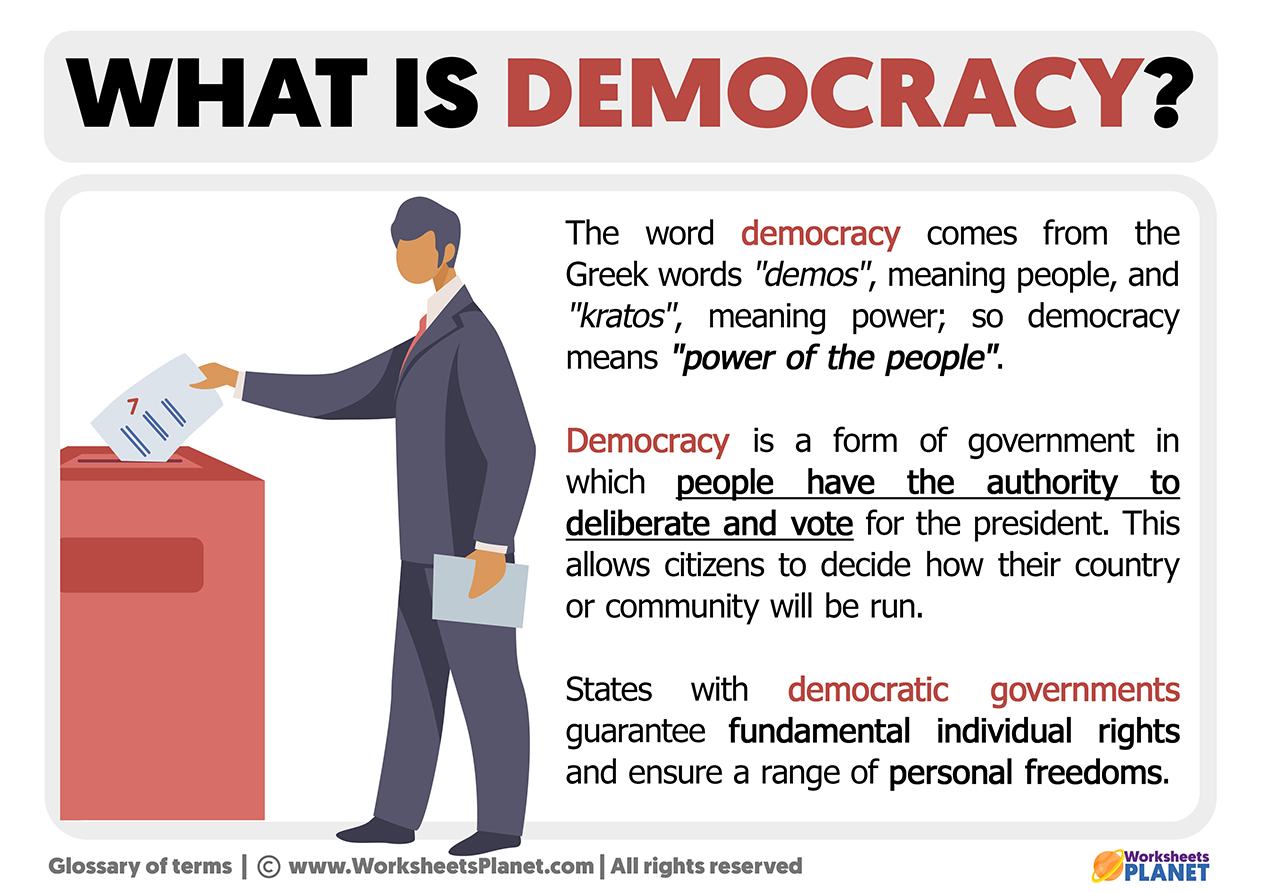Democracy is a type of social organization. The word democracy, of Greek origin, can be translated as “government of the people.” In democracies, it is the people who hold political power. The opposite of democracy is a dictatorship. In a dictatorship, a single political organization or a single person decides about everything.

For example, Sweden is a democracy. The fundamental laws of Sweden establish, among other things, that all public power is derived from the people. The people are the ones who decide which people are going to govern in the country. Citizens elect the parties and politicians who will run the country on their behalf.
Humanity has been debating democracy for several millennia. It is difficult to describe it in a way that everyone agrees, but most agree that democracy refers to the participation and decision-making power of the people. It also deals with the division of powers between the State, the population, and politicians so that said distribution is equitable, equal, and legal.
Characteristics of a Democracy
Below are some examples of elements that characterize democracy.
- The people rule through free and fair elections.
- The majority decides in almost all cases.
- The majority must never oppress the minorities of a country.
- All human beings are the same.
- People enjoy freedoms and political rights.
- Freedom of opinion, expression, press, and assembly are some examples of political freedoms and rights.
- Every individual is equal before and under the law.

